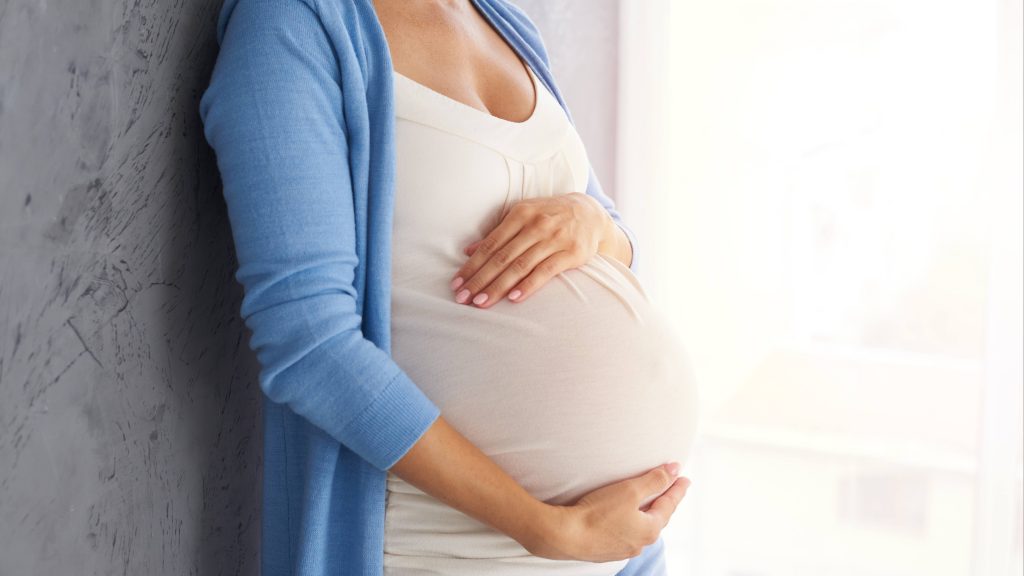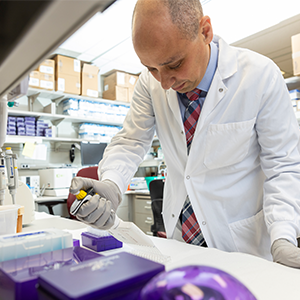-
Women’s Wellness: Pregnancy and COVID-19

Pregnant women have suppressed immune systems, and that could make them more susceptible to COVID-19.
The Centers for Disease Control and Prevention (CDC) says women who are pregnant should be monitored since they are known to be at risk with severe viral illness.
"Pregnant women should now be considered within the high-risk category, and should follow the recommendations that are being made for older adults, people with other comorbidities and health issues," says Dr. Nipunie Rajapakse, a Mayo Clinic infectious diseases expert. She says recommendations for the general public also should be followed by pregnant women, including social or physical distancing, excellent hand-washing, and avoiding contact with anyone who might be sick.
"This is the safest thing for them to do until we have better understanding of what their risks are and whether there are any unique precautions they need to take," Dr. Rajapakse adds.
Risks during pregnancy
Currently, it isn't clear if pregnant women have a greater chance of getting sick from COVID-19 or if they are more likely to experience serious illness. However, pregnant women are at greater risk of severe illness from other respiratory infections, such as the flu.
It also isn't known if COVID-19 causes problems during pregnancy or affects the health of the baby after birth. There have been a small number of reported problems, such as premature birth, in babies born to mothers who tested positive for COVID-19 during pregnancy. But these problems might not be related to the mother's infection.
In a small study of infants born to mothers infected with COVID-19, none of the infants tested positive for COVID-19 and the virus wasn't found in the amniotic fluid or placenta.
Dr. Rajapakse says there has been some reassuring news based on early data. "Pregnant women who have been infected close to the time of term delivery, the outcomes for the babies have been good, generally speaking, and when they have been tested, certain fluids like amniotic fluid, cord blood, throat swabs from the babies and breast milk, signs of the virus haven't been found."
However, a report of 33 infants born to mothers with COVID-19 pneumonia showed that three newborns tested positive for the virus two days after birth, despite precautions taken to prevent infection.
Watch: Dr. Nipunie Rajapakse discusses COVID-19 and pregnancy.
Journalists: Sound bites with Dr. Nipunie Rajapakse are in the downloads at the end of the post. Please courtesy "Nipunie Rajapakse, M.D. /Infectious Diseases/ Mayo Clinic."
In another study of six infants who were born to mothers with mild symptoms of COVID-19, the newborns had no symptoms of COVID-19 and tested negative for it.
"There have been some newborns who have been infected," says Dr. Rajapakse. "But it's still not clear whether that infection happened after the time of birth because they were in close contact with their mother who was infected, or whether this infection happens while the baby is in utero or through the placenta."
Dr. Rajapakse says transmission through the placenta is considered less likely based on what is known about other coronaviruses and respiratory viruses that seem not to be transmitted in that way. But she emphasizes that studies are ongoing to better understand whether that is a risk.
Contact your health care provider right away if you have COVID-19 symptoms or if you've been exposed to someone with COVID-19. Call your health care provider ahead of time to tell him or her about your symptoms and possible exposure, including travel, before going to your appointment.
If you have COVID-19 and are pregnant, your treatment will be aimed at relieving symptoms, and may include getting plenty of fluids and rest, as well as using medication to reduce fever, relieve pain or lessen coughing. If you're very ill, you may need to be treated in the hospital.
Effects on prenatal care
Community efforts to control the spread of COVID-19 might affect your access to routine prenatal care. Talk to your health care provider about whether the use of virtual prenatal care is an option for you, if it's available in your area, and how it works. Ask your health care provider if there are any tools that might be helpful to have at home, such as a blood pressure monitor. To make the most of any virtual visits, prepare a list of questions ahead of time and take detailed notes during the visit. Also, consider researching your options for online childbirth classes.
If you have certain high-risk conditions during pregnancy, virtual visits might not be an option. Ask your health care provider about how your care might be affected.
Labor and delivery recommendations
If you are healthy as you approach the end of pregnancy, some aspects of your labor and delivery might proceed as usual. But be prepared to be flexible. To protect the health of you and your baby, some facilities might limit the number of people you can have in the room during labor and delivery. Visits after delivery might be affected too. Talk to your health care provider about any restrictions that might apply, though restrictions might change as infection rates of COVID-19 in your area change. Your hospital stay likely will be shorter than routine.
If you have COVID-19 or are waiting for test results due to symptoms, contact with your baby after delivery likely will be affected. It isn't known whether newborns who have COVID-19 are at increased risk of severe complications. But there is concern that newborns could become infected with COVID-19 after birth if they come into contact with infected respiratory droplets. Infants born to mothers who have COVID-19 may be cared for in a separate room, with visits limited only to a healthy parent or caregiver.
Health care facilities also may temporarily room mothers who have COVID-19 or are under investigation for having the virus separately from their babies until transmission-based precautions are completed. Your health care team will discuss the risks and benefits of temporary separation and what steps might be involved.
This article was written by Mayo Clinic Staff. Find more health and medical information on mayoclinic.org.
Read more:
- Postpartum guidance and breast-feeding considerations.
- Pregnancy and breastfeeding information from the CDC.
_________________________________________________
For the latest updates on the COVID-19 pandemic, check the CDC website. For more information and COVID-19 coverage, go to the Mayo Clinic News Network and mayoclinic.org.






